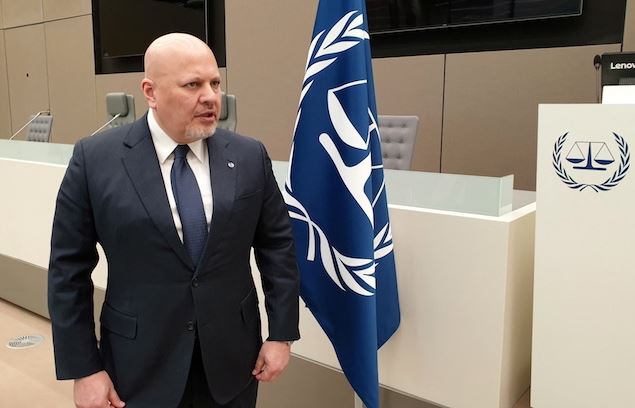
Yesterday, the Federal Reserve cuts US interest rates for the first time in four years. America’s central bank, which lifted rates to a two-decade high, announced a cut of 50 basis points.
Back in 2023, Billionaire and millionaire investors were adding to their cash mountains, betting on higher interest rates and weak stock markets.
More than a third of millionaire investors, (34%), report keeping more of their money in cash. It is estimated they now have around 24% of their portfolio in cash, up substantially from the 14% they held in cash a year ago, according to the survey.
However, many major share indices recorded double-digit gains during 2023, helped by a strong rally in November and December as well as falling inflation made traders more hopeful of an interest rate cut in 2024. Well, that interest rate cut came yesterday.
Is a market correction coming?
After a brief, early-August setback, equity markets quickly recovered, resulting in the seventh positive month out of eight so far this year with the S&P 500 is up nearly 20% in 2024 year-to-date with communication services and technology stocks continue to lead the market, while utilities and financial services stocks are gaining momentum.
Examining the effects of interest rates
Different economic backgrounds are affected by changes in interest rates, factors like salaries, share dividends, debt costs, deposits, property values, and spending habits, including car purchases are all impacted.
Winners and losers of interest rates
When interest rates decreasedisposable income increases for both high and low earners, but the biggest advantage goes to households in the top one percent of income. It is estimated that a one percentage point reduction in interest rates leads to a five percent income boost for these top earners over a two-year period, while those at the bottom experienced only a 0.5 percent increase. Meanwhile, individuals in the middle saw their income rise by 1.5 percent.
What’s happening here?
While reduced interest rates certainly help increase job opportunities, especially for those with lower incomes, the advantages gained by wealthier individuals—such as healthier stock dividends, improved business profits, and lower borrowing costs—far outweigh these benefits.
Once more, lower interest rates lead to benefits for everyone, but these advantages are especially significant for those with higher incomes. A comparable decrease in rates over two years can increase the value of assets like real estate by 20 percent of disposable income for lower-income families, while those at the top experience a 75 percent increase. The effect of reduced rates is more substantial on asset values than on disposable income, and wealthier individuals tend to hold more financial and tangible assets.
How do billionaires and millionaires spend, save and invest their money?
1. They don’t overspend
If you have more disposable income, it’s easier not to overspend.
For example, they’ll purchase a certified pre-owned car versus buying a brand new one; they will search for good deals on vacations; they may upgrade to economy plus on an airline but won’t pay for first class; They will keep their cell phones as long as they are working and don’t feel the need to upgrade every time new technology comes out.
2. They utilize rewards credit cards
The rich use credit cards that offer rewards for their spending. Many of them will put most of their day-to-day living expenses on a credit card that offers points or miles in return. Then they use these rewards to offset the cost of vacations or leisure activities.
And they always make sure to pay their credit card balance off in full every month to avoid incurring any interest charges or fees.
Another added benefit of using a credit card for most of their everyday expenses is that the rich have a strong understanding of what it costs them each month to live their lifestyle.
3. They pay themselves first
The habit of paying yourself first — also known as reverse budgeting — means you build a budget based on your savings goals rather than based on your spending and expenses. In doing so, you ensure that every month, money gets allocated to future you.
The rich pay themselves first by systematically saving money via direct deposit from their pay checks, or as a recurring transfer from their checking accounts.
By saving first, the rich are able to spend whatever is leftover, with the comfort of knowing their savings plans — both long- and short-term — are already taken care of.
4. They keep an emergency fund at all times
An emergency fund is essentially a stockpile of cash that you can use in the short term for unexpected expenses.
Financial experts generally suggest setting aside three to six months’ worth of your living expenses in an emergency fund. But just how much you choose to save depends on your individual income and comfort level.
Arguably as important as how much you save is where you save. Your emergency fund cash should be kept in a savings account that’s accessible and not at risk to the ups and downs of the stock market, but at the same time it should always be earning the highest return possible.
What impact did high interest rates and inflation have on the rich?
Millionaire investors have cut back on restaurant spending, delayed the purchase of a car and given less to charity. Travel and vacation spending is also down among the super rich. They are also borrowing less and planning to borrow less.
Lower interest rates are generally good news for stock markets and the economy, and some companies are more directly impacted than others. But if this year is anything to go by, trying to predict the timing of rate cuts is almost impossible.
At times like this, investors should focus on what they can control – not what they cannot.
Conclusion
Major league investment banks such as JPMorgan and Citi are currently providing more loans to a select group of ultra-high net worth individuals than to their vast number of credit card clients. Just ten years ago, JPMorgan was lending five times more to credit card holders compared to private clients. What drives banks like JPMorgan, Citi, and Morgan Stanley to offer these substantial loans to wealthy clients at such attractive interest rates? One key factor is that these loans are nearly as close to being risk-free as possible.
In 2019, Elon Musk took out $61 million in mortgages on five properties he owned in California.
So why do the super rich borrow money? In simple terms, they don’t rely on a regular income, and a large portion of their wealth is tied up in valuable assets, such as the stock they hold in their own company. They avoid selling stocks to steer clear of capital gains taxesopting instead to secure loans using their shares as collateral.





